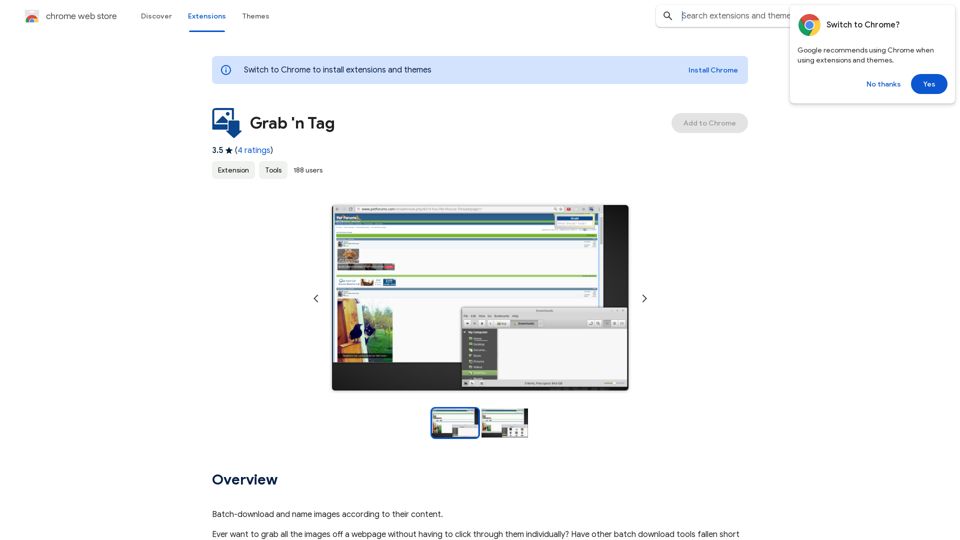Der Chrome Web Store ist eine Plattform zum Entdecken, Installieren und Verwalten von Erweiterungen und Designs für den Google Chrome-Browser. Er bietet Benutzern eine umfangreiche Sammlung von Tools und Designs zur Anpassung ihrer Browsing-Erfahrung, die alle über eine benutzerfreundliche Oberfläche zugänglich sind.
Chrome Web Store
Fügen Sie Ihrem Browser neue Funktionen hinzu und personalisieren Sie Ihr Surferlebnis.
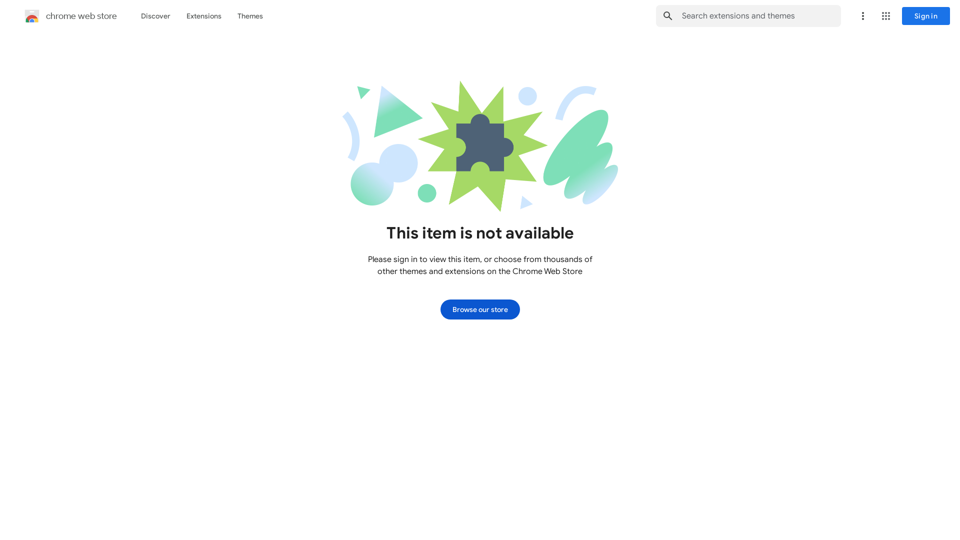
Einführung
Funktion
Einfache Entdeckung und Installation
Durchstöbern Sie Tausende von Erweiterungen und Designs, die für eine einfache Entdeckung kategorisiert sind. Installieren Sie Ihre ausgewählten Add-ons mit nur wenigen Klicks und optimieren Sie so den Anpassungsprozess.
Benutzerbewertungen und Bewertungen
Treffen Sie fundierte Entscheidungen, indem Sie vor der Installation von Erweiterungen oder Designs Bewertungen und Beurteilungen anderer Benutzer lesen.
Nahtlose Verwaltung
Verwalten Sie Ihre installierten Erweiterungen und Designs einfach direkt über die Chrome-Einstellungsseite und sorgen Sie so für ein übersichtliches Browsing-Erlebnis.
Kostenlos nutzbar
Greifen Sie kostenlos auf den Chrome Web Store und seine Funktionen zu, ohne Abonnementgebühren oder Kosten für die Installation und Verwaltung von Erweiterungen und Designs.
Sichere Plattform
Der Chrome Web Store hält strenge Richtlinien für Entwickler ein und gewährleistet so die Sicherheit der Benutzerdaten.
Regelmäßige Updates
Bleiben Sie durch regelmäßige Updates für Erweiterungen und Designs immer auf dem neuesten Stand der Funktionen und Sicherheitspatches.
Häufig gestellte Fragen
Wie greife ich auf den Chrome Web Store zu?
Melden Sie sich bei Ihrem Google-Konto an, um auf den Chrome Web Store zuzugreifen und Ihre Erweiterungen und Designs zu verwalten.
Wie installiere ich eine Erweiterung oder ein Design?
Klicken Sie einfach auf die Schaltfläche "Zu Chrome hinzufügen" auf der Seite der Erweiterung oder des Designs und folgen Sie den Anweisungen, um die Installation abzuschließen.
Wie kann ich meine installierten Erweiterungen und Designs verwalten?
Navigieren Sie zur Chrome-Einstellungsseite und klicken Sie auf "Erweiterungen", um Ihre installierten Add-ons anzuzeigen und zu verwalten.
Gibt es Kosten für die Nutzung des Chrome Web Store?
Nein, der Chrome Web Store ist völlig kostenlos zu nutzen, ohne Gebühren für die Installation oder Verwaltung von Erweiterungen und Designs.
Welche Vorsichtsmaßnahmen sollte ich bei der Nutzung des Chrome Web Store treffen?
Lesen Sie immer Bewertungen und Beurteilungen vor der Installation, seien Sie vorsichtig bei unbekannten Quellen und überprüfen Sie regelmäßig auf Updates, um einen reibungslosen Betrieb Ihrer Erweiterungen und Designs zu gewährleisten.
Verwandte Webseiten
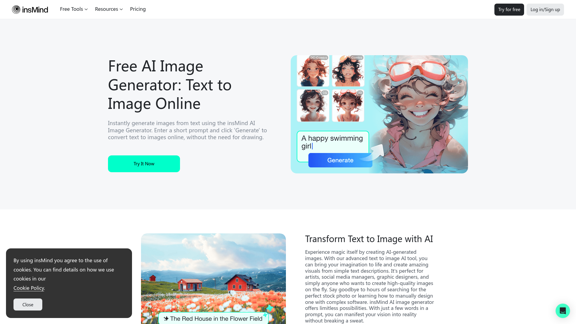
100% Kostenloser KI-Bildgenerator: Text zu Bild Online | insMind
100% Kostenloser KI-Bildgenerator: Text zu Bild Online | insMindSuchen Sie einen kostenlosen KI-Bildgenerator aus Text? Erstellen Sie atemberaubende Bilder mit einem einfachen Textprompt mithilfe des fortschrittlichsten KI-Text-zu-Bild-Generators.
1.77 M

Krea macht generative KI intuitiv. Erstellen, bearbeiten und verbessern Sie Bilder und Videos kostenlos mit leistungsstarker KI.
5.34 M

Luma AI-Video-Generator kostenlos online - Konvertieren Sie Text und Fotos zu Video auf VideoMaker.me
Luma AI-Video-Generator kostenlos online - Konvertieren Sie Text und Fotos zu Video auf VideoMaker.meEntdecken Sie die Macht von Luma AI's Dream Machine, einem fortschrittlichen Videogenerator, der Text und Bilder in hochwertige, dynamische Videos umwandelt. Ideal für Kreative, Marketer und Innovatoren bringt videomaker.me Ihre visuellen Ideen mit atemberaubender Realität und Vielseitigkeit zum Leben.
397.91 K

Finde Hautkrebsbilder im Internet, die am ähnlichsten zu deinem Muttermal oder deiner Hautveränderung aussehen.
193.90 M
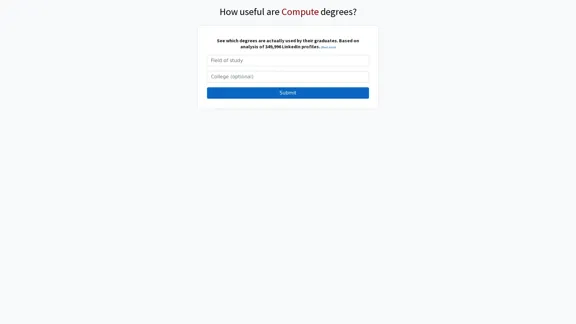
Sehen Sie, welche Abschlüsse von ihren Absolventen tatsächlich genutzt werden. Basierend auf der Analyse von 349.996 LinkedIn-Profilen.
0
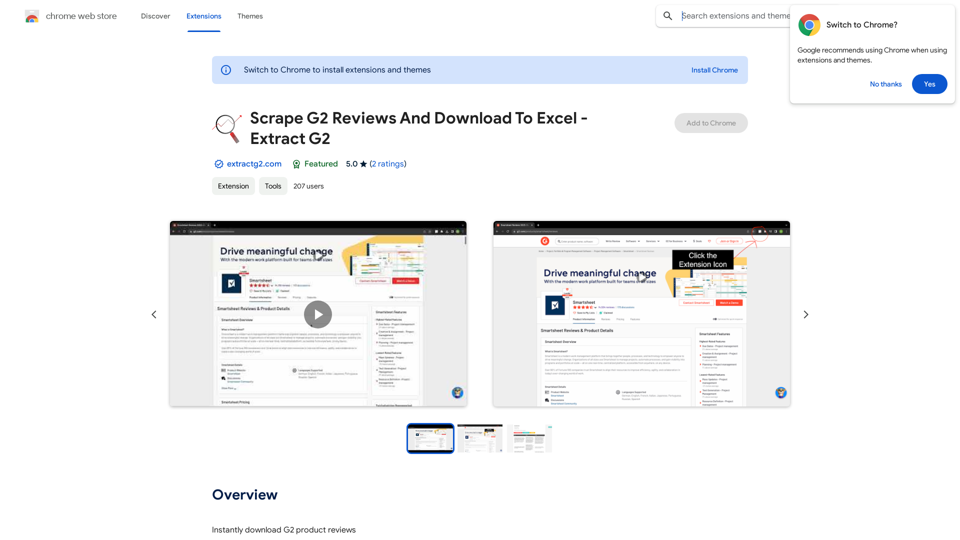
Scrape G2 Bewertungen und Herunterladen in Excel - Extrahieren Sie G2
Scrape G2 Bewertungen und Herunterladen in Excel - Extrahieren Sie G2Sofort herunterladen Sie G2-Produktbewertungen
193.90 M
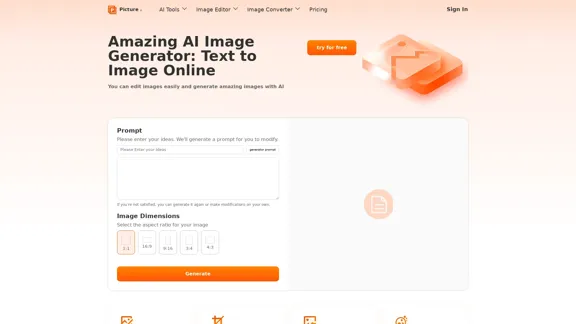
Kostenloser KI-Bilderzeuger | Eingabeaufforderungsgenerator und KI-Bilderzeuger
Kostenloser KI-Bilderzeuger | Eingabeaufforderungsgenerator und KI-BilderzeugerPicture AI ist ein erstaunlicher KI-Bildgenerator und Bildbearbeiter. Er generiert Aufforderungen für Sie und erstellt dann Bilder, die Ihren Bedürfnissen mit KI entsprechen.
100
